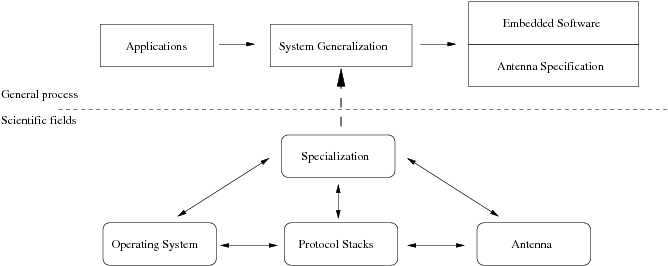Section: Overall Objectives
Overall Objectives
The POPS research group studies solutions to improve programmability, adaptability and reachability of “POPS” (Portable Objects Proved to be Safe). The POPS family contains small and limited devices like smart cards, RFID tags (see Fig. 1 ) [50] , wireless sensors (see Fig. 3 ) [48] or personal digital assistants. Such small devices are characterized by limited resources, high mobility, frequent disconnections, low-bandwidth communications, passive (no battery) or limited battery life and reduced storage capacity. Moreover, in spite of these constraints and because of the use in an untrusted environment, users and applications require high security level for POPS. The development of applications integrating POPS suffers from lack of “reachability” of such platforms. For instance, software development is penalized by exotic and limited operating systems. Indeed, POPS, such as smart cards, are difficult to program and high level of expertise is needed to produce software. Some efforts were taken recently with the advent of Java Cards [45] , PalmOS or Windows CE. But Java Card offers a very small part of Java API and a typical application written in Java cannot be directly translated to Java Card. POPS mobility induces sudden and frequent disconnections, long round trip times, high bit error rates and small bandwidth. Hence, POPS systems have to adapt themselves to application requirements or modification of the environment.
Indeed, the application should guide the system. Therefore, the POPS research group aims to propose a generic approach allowing any application to specialize the system according to its own needs and characteristics (See Fig. 2 ). Since POPS are limited in capacity, specializing the system for the application will allow to embed much less code and functionalities.
POPS research action takes advantage of its strong partnership with Gemplus/Gemalto since more than 19 years. This collaboration brings both partners (the POPS research group of INRIA and Gemplus/Gemalto) to high level of expertise in embedded operating system design and mobile networking which are our two main research activities.







